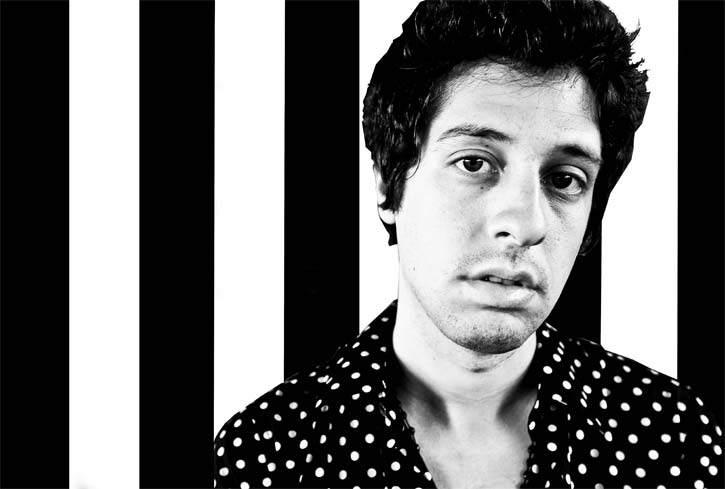
Yet, as Green well knows, many reviews of his music falsely label his move from lo-fi to well-produced albums as a sign of growing maturity. This is the kind of patronizing understanding of his music for which Green has an incisive response. “I think that’s really silly,” he laughs. “I’ve been touring and doing all these concerts since I was 18-years-old… I don’t know what people think I was doing that was so immature, because I was the one that was showing up to play all these concerts for them… I was doing it of my own volition. I wasn’t in the Mickey Mouse Club or some shit.”
Despite his incredulity here, the prospect of identifying his music with a label is a notion to which Green is not entirely averse. He seems to resonate with the “anti-folk” movement, saying of the classification, “Absolutely, yeah, I would endorse it. I don’t exactly know what it is; no one really knows what it is, but I like those people that are involved.” For Green, Minor Love has been shaped by his striving for a specific sound, but relaxing when trying to achieve it. He elaborates on this by recalling the influence of his trip to Nashville prior to recording his last album, Sixes And Sevens.
“I gave up on this incredibly formal aesthetic that I’d gotten into on Gemstones and Jacket Full Of Danger. There were a lot of rules I’d put on myself; there were almost no overdubs. At the time, I was really taken with what The Strokes were doing; Julian [Casablancas] was influencing my aesthetic to the point where he was telling me not to put strings on Gemstones, and I was listening to him,” Green explains. “So he’s really responsible for the way that record sounds in some ways, because he told me to make it a certain way.”
Minor Love was not shaped by any similar experiences, but did come about by means of some significant changes. “I had played all the instruments on my first solo album but not since, so that was the biggest [difference]. Most of the drums I play, which is not normal for me… I feel more comfortable with it now,” says Green. He also cites producer and friend Noah Georgeson as another important influence. “He was a powerful force on how the record sounds. I’d never really worked with a producer before; I usually just make most of those types of decisions; In fact, I’d never really cared about production for a long time… I always felt like the arrangement in itself was the production that I was doing. It was almost like, you know, to not let the production ruin the arrangement that I already planned for the song. But now, on this record… everything is aesthetic on Minor Love; it’s like faded denim.”
Despite this enthusiasm for collaboration, Green seems uncertain at the prospect of working again with Kimya Dawson in The Moldy Peaches. “I’d never say never, but I really don’t think so…” With a smile, he remembers the odd days when the two of them had tried playing together again, saying, “… even one day was enough to make us never want to do it again.” Then, perhaps surprisingly, Green mentions the film Juno, and in a tone that is both slightly bitter and not entirely regretful, he cites the popularity of that film as being in some way responsible for the outcome of The Moldy Peaches. “It was annoying for both of us. I welcome anyone to listen to any song that I’ve done… [but] the song ‘Anyone Else But You’ wasn’t even popular in our set.” says Green. “Maybe at this moment I’d have a better attitude towards it, but at the time, for whatever reason, I had a very bad attitude towards it.”
With more enthusiasm, he explains that his short stint in the UK has helped grow the collaborative relationship between him and his band, although the songs are not quite as tight as he’d like. “Well, the truth is that any inaccuracies that get played live are my fault, and it’s usually because I’m just running around or something, or maybe that I drank too much,” he says. “My band [members] are really avid learners; during soundcheck, we’ll try and learn a new song everyday. I have 150 songs or something now, so there’s a lot. They don’t know them all.”
Besides music, the future also holds other projects for Green. “I’d like to write more,” he explains. “Right now, I’m guest-editing. There’s a magazine called Magnet… I’m writing thirteen articles for them, on government, jazz versus punk, infamy, New York City, anti-folk.” A set of webisodes also accompanies Minor Love, some of which feature Green’s penchant for painting.
“After I finished recording this album, I kind of put my feelers out. If I had enough time, [I wanted] to work on an art show,” says Green. He painted everyday, and his webisodes show him painting and, in the webisode for “Give Them A Token,” he distributes some of his artwork in a park. “Right before I went there,” he recounts, “on the bench before [me] was sitting Woody Allen, and he got up because he saw our camera… I said, ‘Happy Halloween’; he said nothing back.”
Even with all of his projects, and with The Moldy Peaches on indefinite hiatus, Green is open to the future of his music and welcomes the opportunity to work with other people. After much consideration, he says simply, “I think I would like to work with someone… I think maybe I haven’t met them yet.”
Assuming Adam Green survives the infection subduing him tonight, it seems that, thankfully, that will be a possibility for the future, and there will be much more to come from him.






